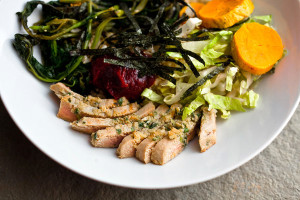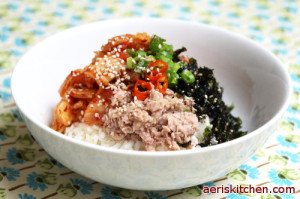I’ve know Jim Romahn for about 15 years. His writing drives a lot of bureaucrats ballistic, which is why he’s recognized as one of Canada’s best journalists writing about food and agriculture.
 Jim just sent me this column about food, protectionism and hypocrisy. The South Koreans went somewhat nuts about American beef earlier this year, with riot police called to quell the protests of tens of thousands.
Jim just sent me this column about food, protectionism and hypocrisy. The South Koreans went somewhat nuts about American beef earlier this year, with riot police called to quell the protests of tens of thousands.
Six months later and the Washington Post reported, what was the big deal?
“Low-priced U.S. beef has appeared in supermarkets here in recent days, after a decision by three major retailers to start selling it again, and the reaction has been brisk business and no political fuss. Fifty tons of U.S. beef disappeared from shelves the first day it was offered for sale."
That’s usually the way things work. Politicians worried about particular constituencies will make outrageous claims on behalf of all Canadians or Koreans or consumers in general, in the absence of any data. Yet when people are allowed to vote at the grocery store, with their wallet, conventional wisdom becomes political nonsense.
So here’s Jim’s take on Canada, South Korea, trade and BS.
Pity the beef and pork producers eager to increase exports to South Korea.
Trade talks have been dragging on for years.
For sure, the beef and hog producers of South Korea oppose dropping tariffs on Canadian products.
But there’s also a big problem in our own back yard.
The Koreans want to sell us cars, but Chrysler, Ford and General Motors are lobbying hard to maintain the 6.1 per cent tariff. So is the Canadian Autoworkers Union.
There is another big problem – our dairy industry.
The trade talks have expanded to bring in other countries to make a deal more attractive, especially to increase exports.
So far those talks involve Singapore, Chile, Brunei and New Zealand.
New Zealand wants to export its dairy products. And everybody knows Canadian dairy farmers won’t budge one iota.
So, after 13 rounds of negotiations with South Korea, and a few with the so-called P4, Canada’s special interests are blocking trade deals that would quite obviously benefit beef and hog farmers and all Canadian consumers.
It’s one thing to stonewall at the World Trade negotiations. It’s even more upsetting when our politicians stonewall on country-specific negotiations, and this P4 group of minor countries.
What are the chances our politicians will agree to trade terms that will increase competitive pressure on our auto industry?
What are the chances they will undermine supply management for the dairy and poultry farmers?
What hope, then, that Canadians will be able to heed the advice of Prime Minister Stephen Harper when he says the current economic crisis calls for free trade.
Harper reminds world leaders that protectionism gets blamed for some of the depth of the Great Depression.
It’s not world leaders who need a lecture. It’s our own Canadian protectionists.
What’s more, Harper has the tools to back his talk with action.
If he could make a deal with the P4, it would set the stage for him to take a far more aggressive position in the World Trade negotiations.
And there the goal from the beginning of the Doha round has been to benefit poor nations. And among the poorest people in those nations are farmers.
The Canadian Federation of Agriculture and a series of agriculture ministers have pretended we can take a “balanced” position in trade negotiations, winning market access for our exporters and continued protection for the marketing boards.
It’s obviously not true.
The Doha round talks have repeatedly stalled. Thirteen rounds of negotiations with South Korea have failed to yield a deal. And Canada is unlikely to stay at the negotiating table with the P4 because it won’t compromise with New Zealand.
It’s time for the general Canadian public to speak up and demand an end to political pandering to special interests. We can’t afford to waste our money and resources, especially as the rest of the world moves to capture the benefits of freer trade.
 Materials and Methods: A case–control study was performed using standardized questionnaires with a case definition of illness with diarrhea. Stool samples, environmental samples, and samples from preserved food items were collected to test pathogens. Pulsed-field gel electrophoresis (PFGE) was performed on the outbreak-related Escherichia coli strains.
Materials and Methods: A case–control study was performed using standardized questionnaires with a case definition of illness with diarrhea. Stool samples, environmental samples, and samples from preserved food items were collected to test pathogens. Pulsed-field gel electrophoresis (PFGE) was performed on the outbreak-related Escherichia coli strains.




 Jim just sent me this column about food, protectionism and hypocrisy.
Jim just sent me this column about food, protectionism and hypocrisy.